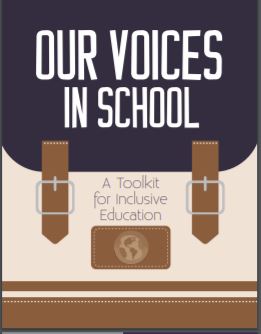
electronic resource
|
Our voices in school : a toolkit for inclusive education
Copies
0 Total copies, 0 Copies are in,
0 Copies are out.

electronic resource
|